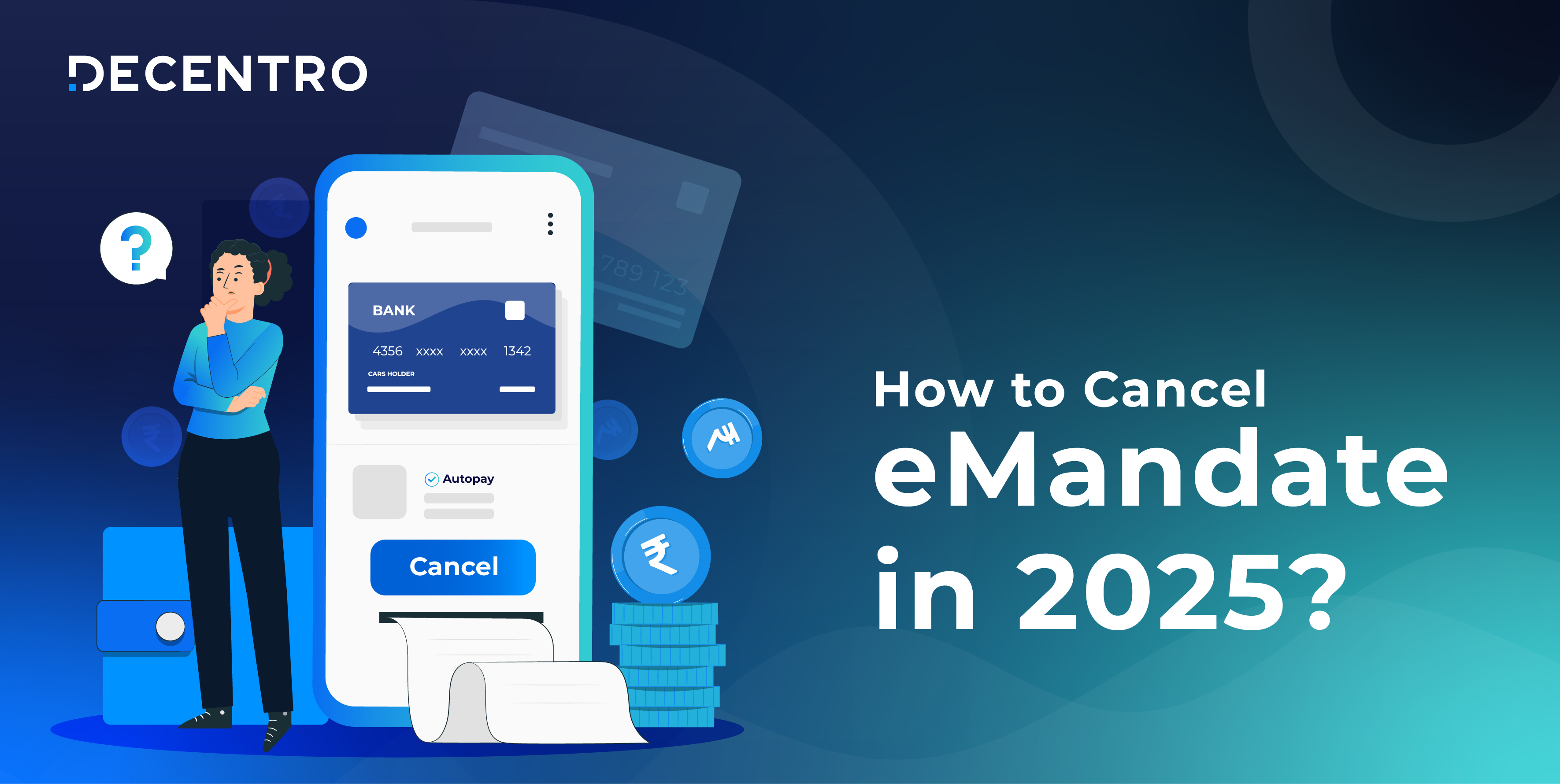Streamline your merchant onboarding with payment aggregators. Learn how they accelerate approvals, reduce costs, and improve security in just a few steps.
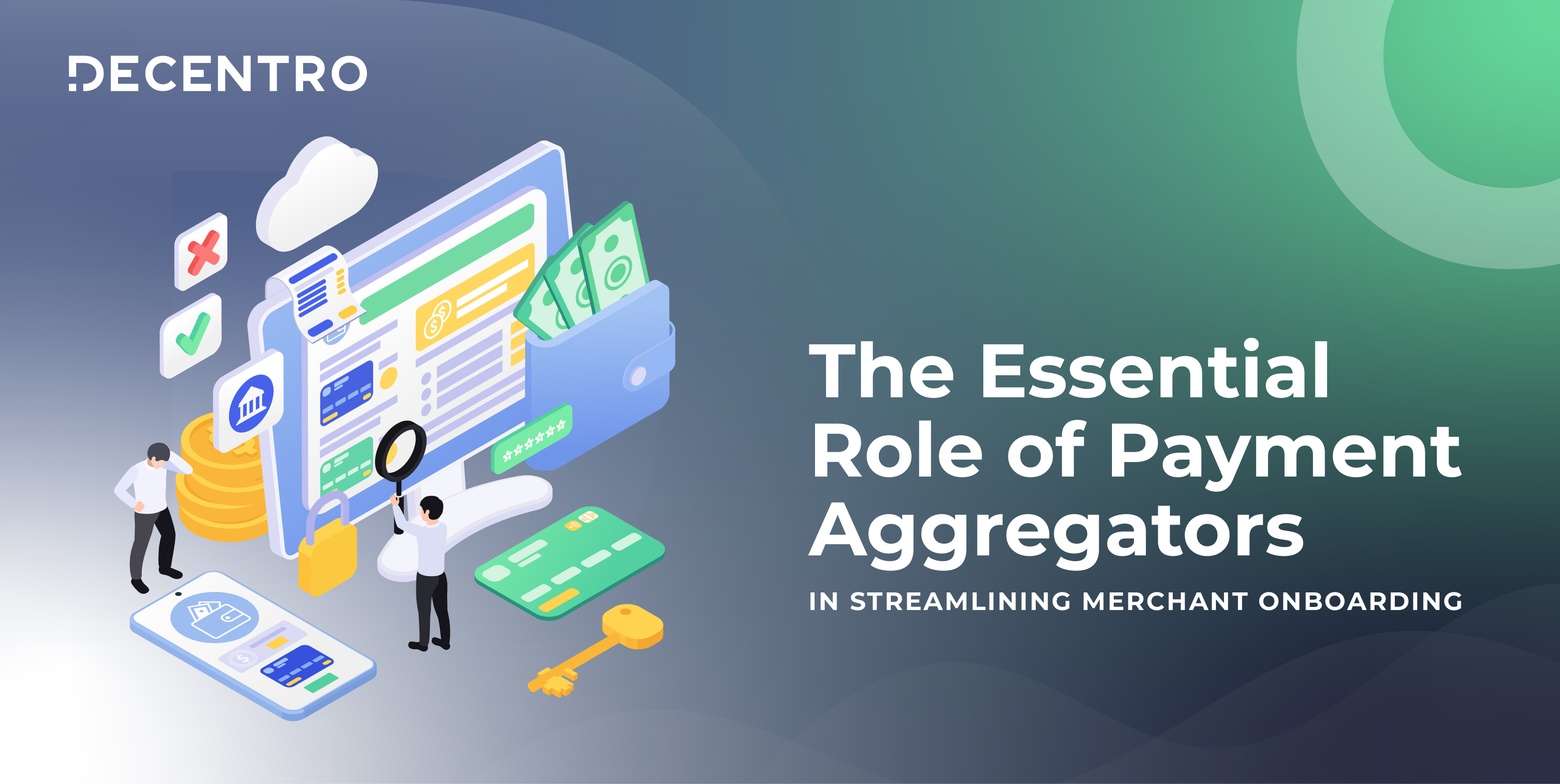
The Essential Role of Payment Aggregators in Streamlining Merchant Onboarding
A true blue millennial trying to engineer her full time-career around the world of content. How cliché is that?
Table of Contents
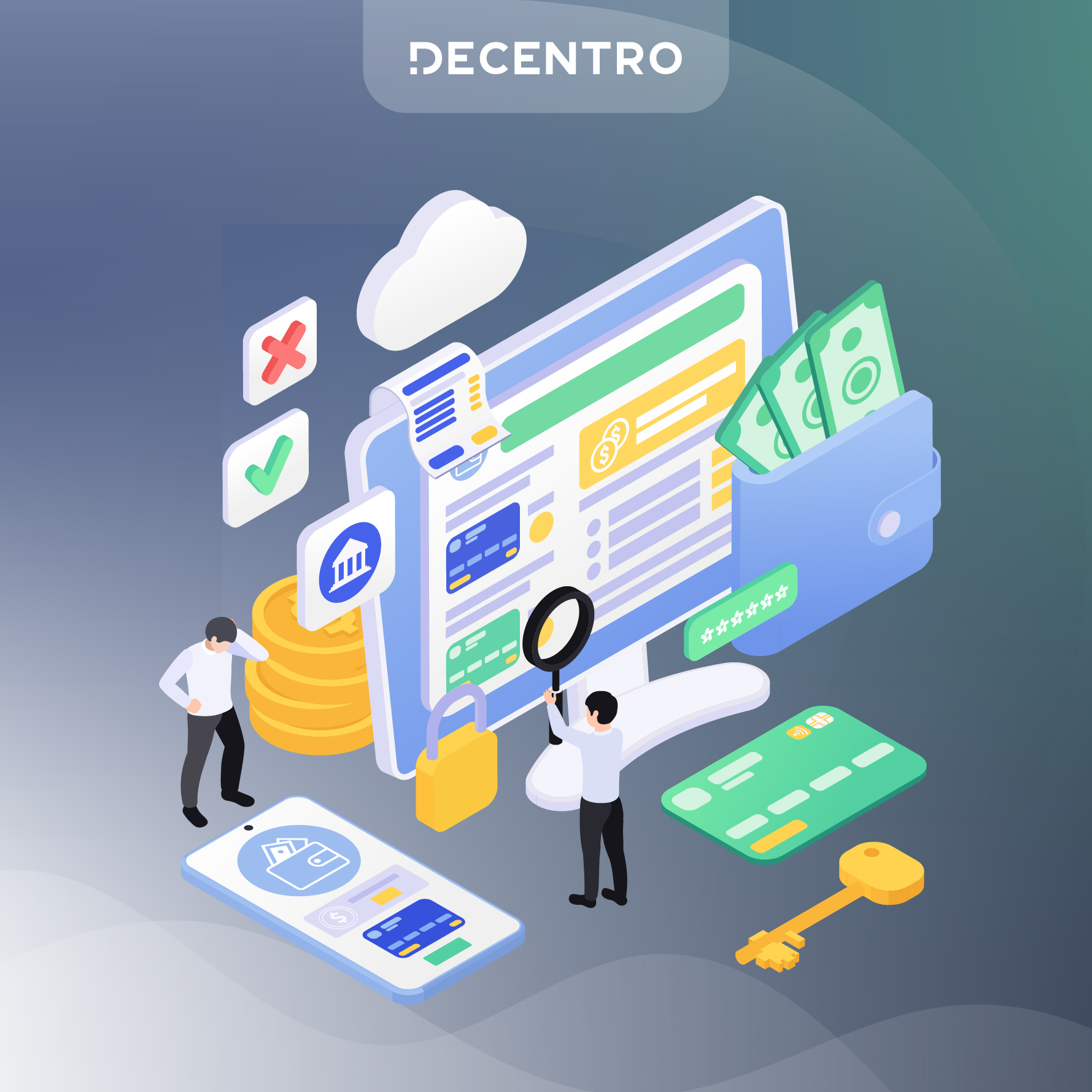
The traditional merchant onboarding process is often fraught with challenges, including lengthy paperwork, manual verification, and multiple integrations. These hurdles can significantly delay businesses’ acceptance of payments, leading to increased growth and revenue generation challenges.
Industry experts predict that digital payments will account for 54% of payment options in e-commerce by 2024. That makes it critical for businesses to cater to customers who want to pay with digital wallets as soon as possible.
With numerous digital wallets available, working with those one by one would be time-consuming. However, payment aggregators make the process smoother.
Payment aggregators are essential in streamlining merchant onboarding by automating key processes, reducing paperwork, and enhancing security.
Through advanced technology and efficient workflows, payment aggregators expedite the onboarding process, allowing merchants to focus on their core business operations. They create a seamless experience for merchants and acquirers by mitigating risks and ensuring compliance.
Understanding Merchant Onboarding
Merchant onboarding is a comprehensive process that involves verifying a business’s identity, assessing risk, and integrating its payment systems with the acquiring bank. This process is time-consuming and complex, involving extensive paperwork, manual reviews, and multiple touchpoints between the merchant, acquirer, and payment processor.
Both merchants and acquirers face significant challenges during this process. Merchants often need to work on starting operations, increased operational costs and frustration due to the lengthy and cumbersome procedures.
Conversely, acquirers grapple with high operational expenses, increased risk exposure, and the need to comply with stringent regulations. To address these issues, a streamlined and efficient merchant onboarding process is vital to foster growth and mitigate risks for all parties involved.
The Role of Payment Aggregators
A payment aggregator is a financial institution that acts as a middleman between merchants and payment processors. Unlike traditional payment processors that require individual merchant accounts, payment aggregators pool multiple merchants’ transactions into a single account, simplifying the payment process.
This differs from other payment models, such as payment gateways, as aggregators typically assume more financial risk and provide additional services beyond transaction processing. It will further assist in cross-border payments, which is a payment and banking trend.
How Payment Aggregators Simplify Onboarding?
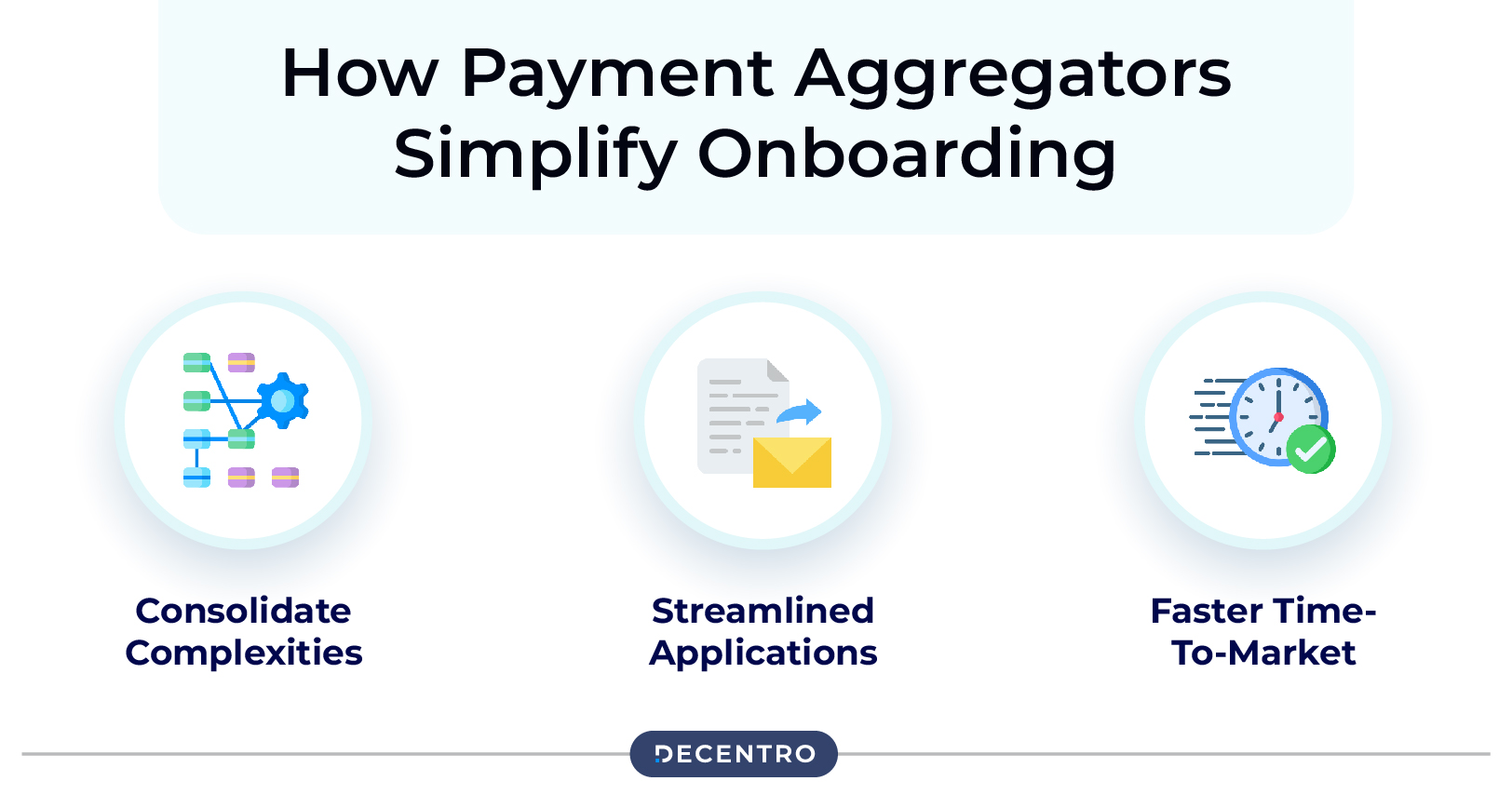
Consolidate complexities
Payment aggregators help manage interactions with multiple financial institutions. They serve as a single point of contact and handle the relationships with financial institutions on behalf of the merchant, reducing the administrative burden and time spent on negotiations.
Streamlined applications
Payment aggregators often offer simplified application processes with minimal paperwork. They can quickly verify information and expedite approval times, allowing merchants to focus on their business rather than administrative tasks. This is made possible by leveraging technology and automation.
Faster time-to-market
Merchants can start accepting payments much faster compared to traditional methods. This speed-to-market advantage is crucial for businesses looking to capitalize on opportunities and gain a competitive edge.
Features and Benefits Offered by Payment Aggregators
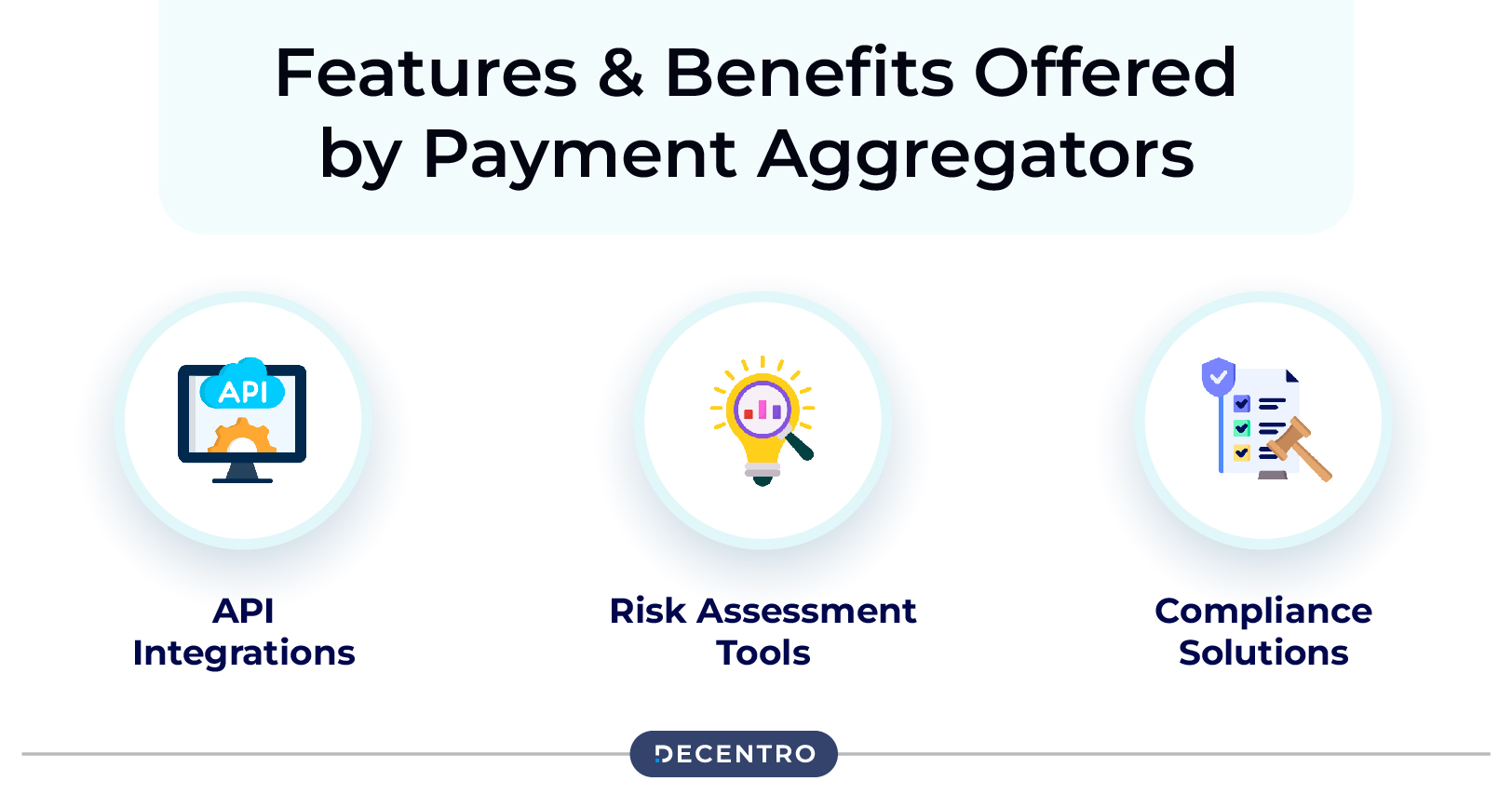
API integrations
Payment aggregators typically provide robust application programming interfaces (APIs) that allow merchants to easily integrate payment processing into their existing software systems, such as e-commerce platforms, point-of-sale systems, and customer relationship management (CRM) tools.
This seamless integration eliminates the need for manual data entry, reduces errors, and improves overall efficiency. It is also a system that enables open banking.
Risk assessment tools
Payment aggregators employ advanced fraud detection and prevention technologies to protect merchants from financial losses. These tools analyze transaction data in real time to identify suspicious activities and patterns indicative of fraudulent behaviour. By proactively detecting and preventing fraud, aggregators help to reduce chargebacks, which can negatively impact a merchant’s reputation and bottom line.
Compliance solutions
The payment industry is subject to a complex regulatory landscape. Payment aggregators often have dedicated compliance teams and systems to ensure merchants adhere to relevant regulations, such as PCI DSS, AML, and KYC requirements. By handling compliance matters, aggregators relieve merchants of the burden of navigating complex regulatory requirements, allowing them to focus on their core business operations.
Real-world Examples of Successful Aggregator Implementations:
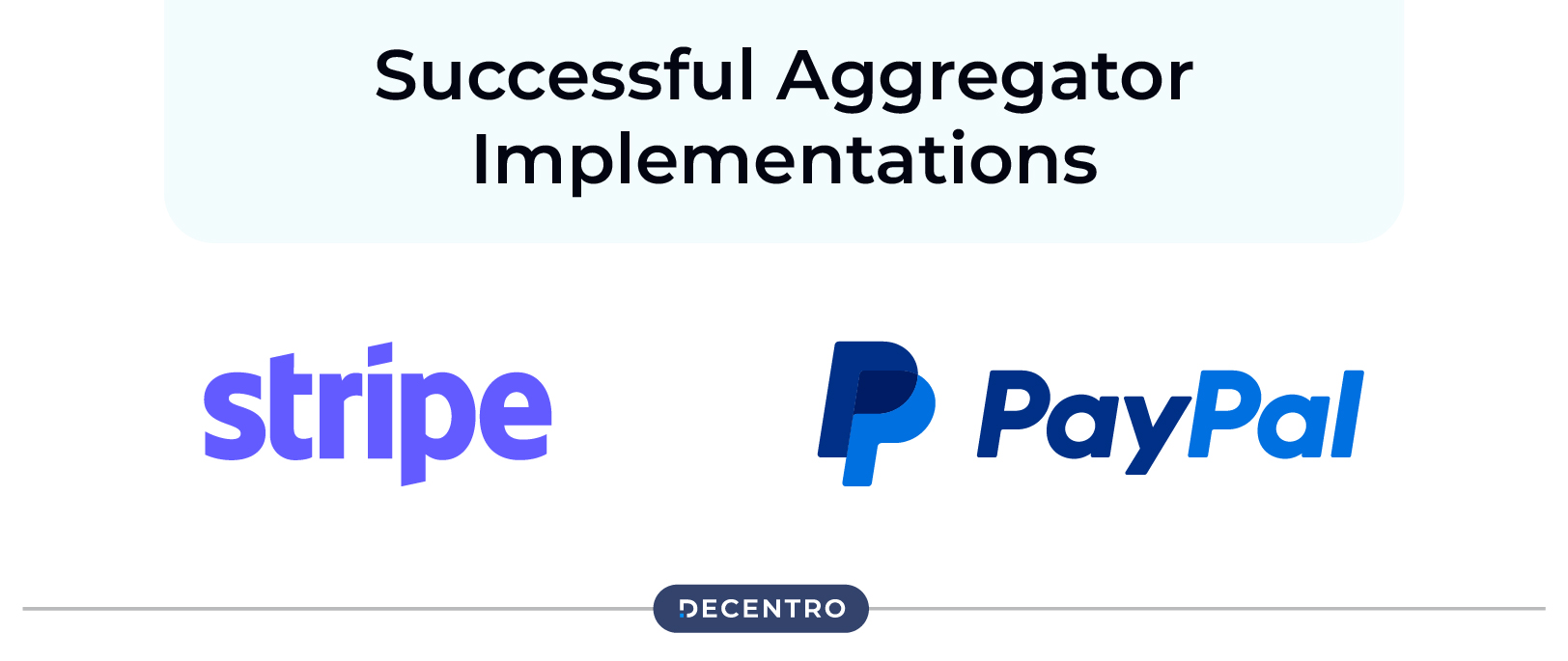
- Stripe: User-friendly platform with diverse payment options and robust fraud prevention. Stripe is used in 145 countries as a payment solution.
- PayPal: Trusted brand offering secure and convenient payment solutions. PayPal’s fiscal year 2023 revenue amounted to $29.7 billion.
Key Benefits of Payment Aggregator Onboarding
The benefits of partnering with a payment aggregator extend beyond streamlined onboarding. They provide merchants with a robust platform to optimize their payment operations. They do these through a comprehensive suite of tools and services payment aggregators provide merchants.
- Reduced time-to-market and increased revenue: Accelerated onboarding enables businesses to accept payments swiftly, facilitating faster market entry and unlocking new revenue streams.
- Significant cost savings: Eliminating manual paperwork, reducing operational overhead, and optimizing payment workflows result in substantial cost reductions for merchants and acquirers.
- Improved customer experience and reduced churn: Expedited onboarding allows merchants to focus on delivering exceptional customer service, fostering loyalty, and reducing customer attrition.
- Enhanced fraud prevention and risk mitigation: Advanced fraud detection tools safeguard businesses from financial losses, protecting revenue and building customer trust.
- Increased operational efficiency and scalability: Streamlined processes and centralized payment management empower businesses to operate more efficiently and scale their operations with ease.
Challenges and Considerations
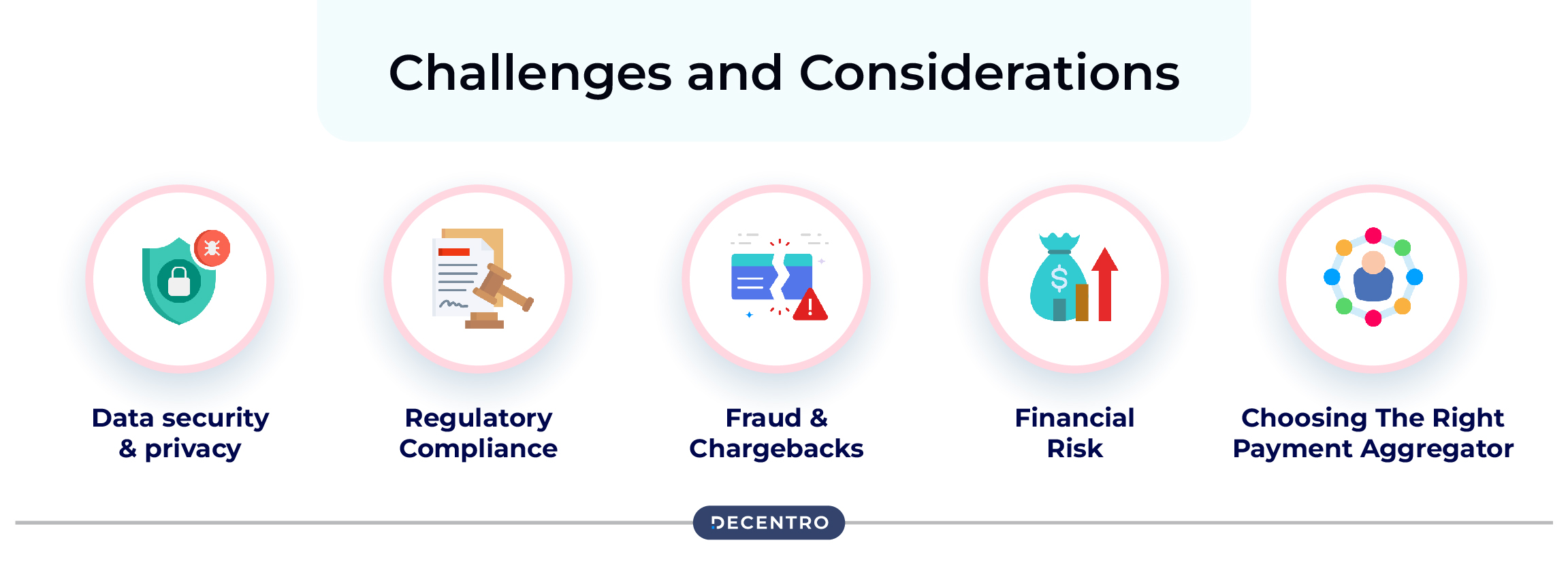
Payment aggregators offer numerous benefits but do not offer them without particular challenges requiring careful consideration. Navigating the complexities of the payment industry demands robust strategies and a solid commitment to compliance and security.
Data security and privacy
Protecting sensitive customer data is paramount. Payment aggregators must implement stringent security measures, such as encryption, tokenization, and regular security audits to safeguard information.
Regulatory compliance
The payment industry is subject to a complex regulatory landscape. Adhering to evolving regulations, such as PCI DSS, AML, and KYC requirements, is important for maintaining operational integrity and avoiding penalties.
Fraud and chargebacks
Managing fraud and chargebacks is a constant challenge. Payment aggregators must employ advanced fraud detection tools and implement effective chargeback management strategies to protect merchants and minimize financial losses.
Financial risk
Aggregators assume financial risk by pooling merchant transactions. Robust risk assessment and management practices are essential to mitigate potential losses.
Choosing the right payment aggregator
Merchants must carefully evaluate their needs and select an aggregator that aligns with their business goals. Factors to consider include fees, features, security, compliance, and customer support.
Businesses have to understand these risks. That is why selecting a reputable payment aggregator is crucial. In this way, they can mitigate risks and maximise the benefits of this payment model. Setting this up requires a background in computer science. It is unnecessary if you have an IT team but if you want to go down that path, you can find an accelerated computer science degree online.
The Indispensable Role of Payment Aggregators in Merchant Onboarding
Payment aggregators have revolutionised the merchant onboarding process, transforming it from a complex, time-consuming endeavour into a streamlined and efficient operation. By consolidating interactions with financial institutions, automating paperwork, and accelerating approval times, aggregators empower businesses to focus on growth rather than administrative burdens.
Beyond onboarding, payment aggregators offer a range of benefits, including enhanced security, improved customer experience, and increased operational efficiency. However, it is essential to acknowledge the challenges associated with this model, such as data security, regulatory compliance, and fraud prevention.
Merchants can harness the full potential of this technology by carefully selecting a payment aggregator that aligns with their business objectives and implementing robust security measures. In today’s fast-paced digital economy, payment aggregators have become indispensable partners for businesses seeking to optimize payment operations and achieve long-term success.
So, if you are searching for the perfect Payment Aggregate for all your transactional needs, email us at hello@decentro.tech, and we will contact you.


